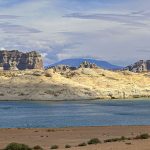
Opinions | The hunger and need for energy
By Clara Pratte
Editor’s note: Clara Pratte served as the executive director for the Navajo Nation Washington Office, the national director of the Native American Affairs of the U.S. Small Business Administration, and as the trade specialist/business analyst for the International Trade Administration. She worked for three U.S. presidential and four Navajo presidential administrations and for a member of the U.S. Congress. Pratte was the national director for Indian Country for Biden for President 2020. She serves on the White House National Infrastructure Council and the World Wildlife Fund and Environment Defense Fund boar
The world has a seemingly endless need for energy. This last year the world population topped a record 8 billion people. Our energy demand will only continue to push the limits of what we have currently available.
Aside from each of us committing to stop energy consumption, an unrealistic endeavor, there are several things we can do for ourselves and the planet to approach energy consumption more sustainably.
Perhaps the more important question is, how can we, as Diné people, provide energy access to our people while improving energy development and consumption in a way that coincides with the fundamental need to develop our economy responsibly and in a way that respects nahasdzáán?
Over the last decade, we have seen the Nation move toward renewable solutions such as solar and wind. Notably, the signing of the Hayoołkááł Proclamation in 2019 marked the first time the Navajo Nation officially stated its intent to move to renewable solutions. This was a bold and welcome move considering in the previous decades the focus had been on operating and maintaining coal assets.
I’ve been honored to work on energy and economic development projects nationwide to ensure tribal communities benefit first and foremost in the new energy economy.
In this work, it is critical to keep the goal of reducing carbon in the atmosphere at the forefront. All policies and technologies must be at the table if we are to survive as a planet. A part of an all-solutions-based conversation is hydrogen, which has been touted as a potential cleaner energy source. Both Japan and China have pushed hydrogen to fuel future energy development.
The issue of creating sustainable clean energy has been a center point of the Biden Administration, which is also looking to hydrogen as a solution. The U.S. Department of Energy’s (DOE’s) Energy Earthshots Initiative looks to reach the Biden–Harris Administration’s goal of net-zero carbon emissions by 2050. A U.S. industry estimate shows the potential for 16% carbon dioxide emission reduction by 2050 as well as $140 billion in revenues and 700,000 jobs by 2030 driven by hydrogen.
We have a tribal nation economy that should be booming instead of languishing. Our per capita income rate is approximately 11k annually, a third of the national average. The few unionized jobs we had locally left with the closure of Navajo Generating Station and affiliated mines, which marked a bittersweet time of transition as we celebrated the environmental win while contemplating the economic impact.
Our children are leaving in droves to pursue opportunities off Dinétah, and here we sit wringing our hands, saying “doodah” to new opportunities. There is a balance to be had, and this isn’t it.
We must rely not on scare tactics but on facts. The Nation now has an opportunity to participate in a world-class clean energy project that follows rigorous testing, safety, and science. It will ensure thousands of pounds of carbon is not released into the atmosphere while simultaneously bringing renewed optimism and prosperity to the Nation. It is a unique chance to create multi-generational jobs and opportunities that will serve as a magnet to get our Diné back to the Nation.
Chapters are being engaged at this early stage to provide input. No one has tried to pass any support resolutions because the project is being developed under the Free, Prior, and Informed Consent principles outlined in the UN Declaration on the Rights of Indigenous Peoples. This states that impacted persons must be given complete information before any determinations or project actions.
The education process will allow for a full and open dialogue and education in Diné bizaad to commence before preemptively forcing resolutions with little to no discussion. Our communities deserve to hear all sides, consider and decide.
Our worldwide hunger for energy isn’t going anywhere, and we, as Diné people, can proactively consider and be a part of solutions while creating jobs for our people, or we can hold a sign that says “doodah” and watch as the world continues to go around us.
Clara Pratte
CEO, Strongbow Strategies
Tsé Si ‘Ání








 Highway 264,
Highway 264, I-40, WB @ Winslow
I-40, WB @ Winslow